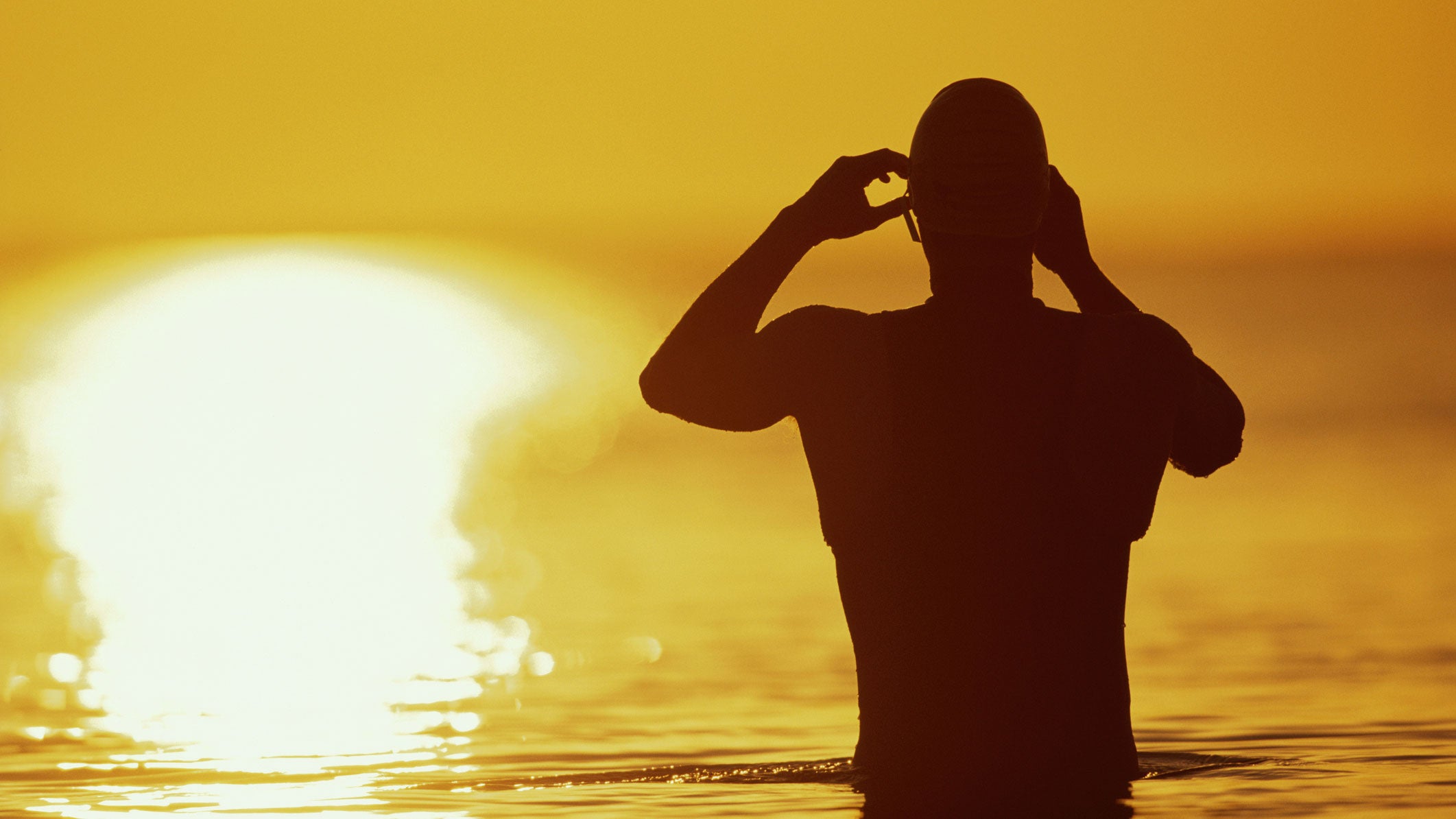Struggling With What Could Have Been? Don't Miss This Advice

Experiencing FOMO — fear of missing out — is an insidious phenomenon that tends to plague our “always on” culture. And despite the fact that no one is technically missing out on anything thanks to widespread race cancellations, some athletes are still feeling like they’ve been left in the dark.
Jason Loebig, a Chicago-based Nike Training and Running coach and co-founder of Live Better Co., believes this is because athletes are inherently competitive and focused on their chance to shine.
“The bottom line is that athletes are competitors,” Loebig said. “They want to race and know how good they are compared to the next guy or girl, which includes the training cycle just as much as race day.”
He continued, “I think it’s less FOMO than the fear of the unknown; the fear of not being ready for when races are put back on the schedule. Athletes [also] fear ‘falling behind’ if they are unable to race and train, which leaves them in a difficult predicament in our current situation. Without a race to train for, how should they structure their training for an unknown return to racing in the future? What is there to look forward to? How much training is too much right now? How much training is too little?”
However just because there’s little certainty surrounding events and races, there’s plenty that athletes can be working on at the moment. Not to mention virtual races, like the Triathlete Challenge: At Home, to remain sharp.
“Focus on base building without sacrificing occasional (but less) speed work,” Loebig offered. “We still need physical challenge in our lives; it builds our physical strength but also pushes our mental fortitude. The athletes who best practice resilience and optimism right now will be best prepared for their next race.”
Loebig also recommended people use this time to reset their process by asking themselves what they can do to be a better athlete and a better human being.
“Get clear on goals for the future, starting with identifying strengths and weaknesses. This is a great time to work on structural deficiencies—mobility, nutrition strategies, sleep, etc.—that might go overlooked during a training season. How can we better use this time to visualize success? How can we build better health in a holistic way, which will lead to better performance in the future?”
“It is also a great time to work on our mental toughness. While other athletes are complaining, you can choose to be grateful for the opportunity to reset and get organized,” Loebig added. “While other competitors are playing victim, we can choose to be positive and pick a growth mindset instead. Who are the people you are choosing to put in your corner? Have you checked in with your coach or community to develop a stronger team bond? I think we have an opportunity right now to pick the best path forward.”
This outlook is something that avid runner Steven Rojas, a member of Brooklyn Track Club, is striving to abide by. At the start of the year, Rojas signed up for every race that New York Road Runners had on the agenda until August 2020; all of which have now been canceled. Instead of letting FOMO creep in, he is investing in other facets of his well being.
“I’m feeling OK. Some days are much better than others,” Rojas said. “I miss my run club very much. All those track workouts, long runs, and team meetings really bring a positive aspect to my environment.
My kind teammates, who are always so supportive and push me to do better each time we run, are important to me and I can’t wait to see them all again.”
“I have been trying to spend my time as constructively as possible during lockdown,” he continued. “I think it’s important to keep up training to keep your mind and body occupied. COVID-19 has presented a unique situation and we need to find a way to make the best of it. I’ve been training at home via Zoom with Stephen from S10 Training, stretching, doing yoga, and lots of meditation with the Inscape app and I’m currently re-reading the running adventure ‘Born to Run’ by Christopher McDougall.”
Of course, to keep his running-related goals at the forefront, Rojas has also been taking to Central Park when the area is quiet early each morning. Alternatively, he’ll go to empty trails in upstate New York with his dog in tow for company.
He maintained, “Running brings so much to me personally. On a superficial level, it just makes me look better and feel better. On a deeper, more introspective level, running provides me with a sense of calm and connection to something larger than just myself.
On that note, Loebig’s parting advice to athletes is to shift attention away from canceled events and back to the present moment.
“FOMO, in an athletic context, is the fear of not being able to compete in the future,” he said. “It is a form of anxiety; an excessive focus on the future. This can be helped by redirecting that focus to the present. A gratitude practice is a useful strategy to achieve better presence. Not only does it produce dopamine to assist in an immediate boost of happiness, but it can kickstart action to focus on what is right in front of you. Today’s training session is what is most important, not worrying about what may or may not happen in the future.”
“I get my athletes to choose to be grateful for what they can do instead of worrying about what they can’t do. If the race is out of your control, what can you control? The basic answer is you can control your reaction to any and all adversity, and I believe this freedom of choice is the most powerful decision you can ever make in your life,” Loebig concluded.